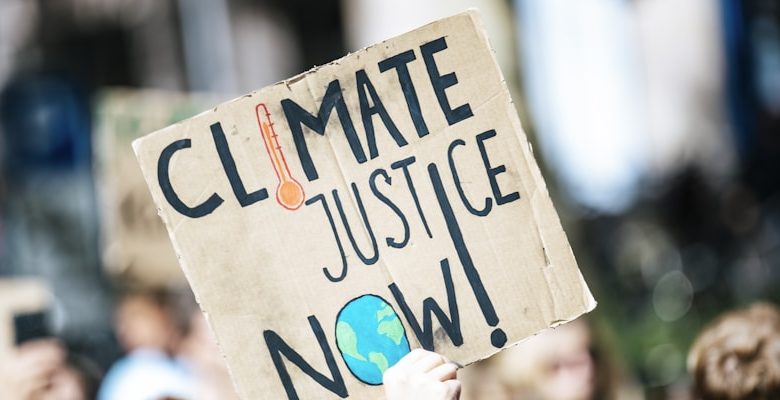The Impact of Climate Change on Future Generations

- Understanding the long-term consequences of climate change
- How climate change is shaping the world for future generations
- The urgent need for action to mitigate climate change
- Implications of climate change on the health of future generations
- Climate change and its impact on food security for future generations
- Addressing the social and economic challenges posed by climate change
Understanding the long-term consequences of climate change
Understanding the long-term consequences of climate change is crucial in order to comprehend the impact it will have on future generations. Climate change is leading to rising global temperatures, which in turn is causing more frequent and severe natural disasters such as hurricanes, droughts, and wildfires. These extreme weather events not only result in immediate destruction and loss of life, but also have lasting effects on the environment, economy, and society as a whole.
One of the major long-term consequences of climate change is the loss of biodiversity. As habitats are destroyed and species are unable to adapt quickly enough to changing conditions, many plants and animals face extinction. This loss of biodiversity can have far-reaching effects on ecosystems, disrupting food chains and leading to imbalances that can be difficult to reverse.
Another significant long-term consequence of climate change is the impact on human health. Rising temperatures can lead to an increase in heat-related illnesses and deaths, as well as the spread of diseases carried by insects such as mosquitoes. In addition, extreme weather events can damage infrastructure and disrupt access to clean water and food, further exacerbating health challenges for vulnerable populations.
How climate change is shaping the world for future generations
Climate change is already having a profound impact on the world we live in, and its effects will be even more pronounced for future generations. The increasing global temperatures, rising sea levels, and extreme weather events are all clear signs of the changing climate. These changes are not only affecting the environment but also influencing the way we live, work, and interact with the world around us.
One of the key ways in which climate change is shaping the world for future generations is through its impact on ecosystems and biodiversity. As temperatures rise, many plant and animal species are facing challenges in adapting to their changing habitats. This can lead to disruptions in food chains, loss of biodiversity, and even extinction of certain species. The loss of biodiversity can have far-reaching consequences for ecosystems and the services they provide, such as clean water, air, and soil.
Furthermore, climate change is also affecting human societies and communities in various ways. Extreme weather events, such as hurricanes, droughts, and wildfires, are becoming more frequent and severe, leading to loss of life, destruction of property, and displacement of populations. These events can have long-lasting social, economic, and political implications, especially for vulnerable communities that lack the resources to adapt and recover.
It is clear that the impact of climate change on future generations will be significant and far-reaching. It is crucial for us to take action now to mitigate the effects of climate change and ensure a sustainable future for the generations to come. By reducing our carbon footprint, investing in renewable energy sources, and implementing policies to protect the environment, we can create a better world for future generations to thrive in.
The urgent need for action to mitigate climate change
It is evident that there is an urgent need for action to address the pressing issue of climate change. The impact of climate change on future generations will be profound and long-lasting if we do not take immediate steps to mitigate its effects. The scientific consensus is clear – human activities such as burning fossil fuels and deforestation are driving global warming at an unprecedented rate.
It is crucial that we reduce our carbon footprint by transitioning to renewable energy sources and adopting sustainable practices. Investing in clean energy technologies and implementing policies to limit greenhouse gas emissions are essential steps in combating climate change. Additionally, protecting and restoring ecosystems such as forests and wetlands can help absorb carbon dioxide from the atmosphere.
Failure to act now will result in irreversible damage to the planet, leading to more frequent and severe natural disasters, rising sea levels, and loss of biodiversity. Future generations will bear the brunt of these consequences if we do not act decisively. We must prioritize the well-being of our planet and work together to secure a sustainable future for all.
Implications of climate change on the health of future generations
As climate change continues to worsen, the implications for the health of future generations are becoming increasingly concerning. Rising temperatures, extreme weather events, and air pollution are all contributing to a range of health issues that will impact individuals for years to come.
One of the most significant impacts of climate change on health is the increase in heat-related illnesses. As temperatures rise, particularly in urban areas, the risk of heatstroke and dehydration also rises. This can be especially dangerous for vulnerable populations, such as the elderly and young children.
Additionally, the increase in extreme weather events, such as hurricanes and wildfires, can have devastating effects on both physical and mental health. These events can lead to injuries, displacement, and trauma, all of which can have long-lasting consequences for individuals and communities.
Furthermore, air pollution, which is exacerbated by climate change, is a major threat to public health. Poor air quality can lead to respiratory problems, cardiovascular issues, and other serious health conditions. This can not only reduce the quality of life for individuals but also place a significant burden on healthcare systems.
In order to mitigate these impacts on the health of future generations, urgent action is needed to address climate change. This includes reducing greenhouse gas emissions, investing in renewable energy sources, and implementing policies to adapt to the changing climate. By taking these steps now, we can help protect the health and well-being of those who will inherit the planet from us.
Climate change and its impact on food security for future generations
Climate change is having a significant impact on food security for future generations. As global temperatures rise, extreme weather events such as droughts and floods are becoming more frequent, leading to crop failures and food shortages. This poses a threat to the availability and affordability of food for future generations.
One of the main challenges posed by climate change is the disruption of agricultural systems. Changes in temperature and precipitation patterns can affect crop yields, leading to a decrease in overall food production. This can result in higher food prices and limited access to nutritious food for future generations.
Additionally, climate change can also affect food distribution and access. Extreme weather events can damage infrastructure such as roads and bridges, making it difficult to transport food from farms to markets. This can further exacerbate food shortages and insecurity for future generations.
It is crucial that we take action to mitigate the impact of climate change on food security. This includes implementing sustainable agricultural practices, investing in resilient food systems, and reducing greenhouse gas emissions. By taking these steps, we can help ensure that future generations have access to an adequate and affordable food supply.
Addressing the social and economic challenges posed by climate change
Addressing the social and economic challenges arising from climate change is crucial for the well-being of future generations. As global temperatures continue to rise, we are witnessing an increase in natural disasters, food and water scarcity, and displacement of communities. These challenges require immediate action to mitigate their impact on society and the economy.
One way to address these challenges is by investing in renewable energy sources such as solar and wind power. By transitioning away from fossil fuels, we can reduce greenhouse gas emissions and slow down the pace of climate change. This shift towards sustainable energy not only helps combat global warming but also creates new job opportunities and stimulates economic growth.
Another important aspect of addressing social and economic challenges posed by climate change is by implementing policies that promote sustainable practices. Governments and businesses must work together to develop strategies that prioritize environmental conservation and reduce waste. By incentivizing green initiatives and enforcing regulations, we can ensure a more sustainable future for upcoming generations.
Furthermore, education plays a crucial role in addressing the social and economic challenges of climate change. By raising awareness about the impact of global warming and the importance of conservation, we can empower individuals to make informed decisions that benefit the environment. Educating the youth about sustainable practices ensures that future generations are equipped to tackle the challenges posed by climate change.



